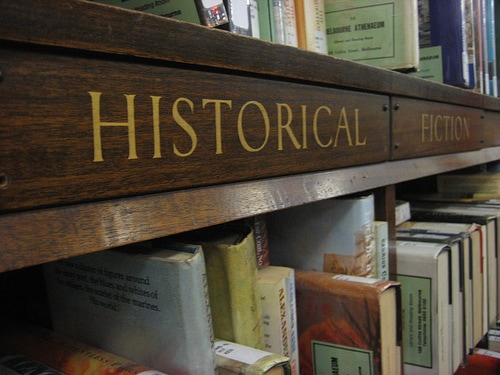|
I was about 14 when I realized I enjoyed writing historical fiction. Then gawky, modestly full of angst, and just getting my sea legs with writing, I was fangirl of three things: comics, Fall Out Boy, and Pirates of The Caribbean. The last one was where I first found my voice in fanfic writing, curious to explore other characters and alternate universes after watching the movies and reading the spin-off novels so many times. The PoTC craze was bigger then, since the original trilogy had just finished, so pirate books were everywhere. Busy writing, I opted to snap up whatever I could to read more about the Golden Age of Piracy, and discovered how much more I liked that instead. Clumsily, I started stitching up my Pirates stories with more historical accuracy and peppering them with historical figures like Blackbeard and Calico Jack. I dragged my family all the way to Galveston to visit the Elissa, one of the few functioning tall ships in the United States. I went find Jean Lafitte’s house by the harbor, then took all the details back to my writing. It actually paid off; I won my first writing award for the fanfic I composed with that research. I really haven’t changed much as an adult, though my stories got more original and my adventures got bigger. Most importantly though, I’ve become a much better researcher. When I first started writing my current series around late 2012, I vanished back down the research rabbit hole, into the world of Gothic fiction, Victorian history, zombies, and Irish mythology. It was kind of a handful, but I was eager about that. I wrote a few very top-heavy rough drafts and spilled all my information into this book, the author equivalent of taking several buckets of paint and dumping their contents straight to the canvas. The result was potentially pretty, but needed… organizing, lest it turn into a mushy shade of gray. This is a big sin in historical fantasy, where the author has so much to share with the audience that the story can get lost in the details, and Dickens call-backs, and angles of possible historical accuracy (I’m looking at you, Cassandra Clare). The good thing about being a writer is my paint isn’t permanent, so I can separate and remove colors as I need. This also meant narrowing down what kind of research I needed for the story in the first place. So, I spent a few more years on the book, removing layers and adding small flourishes of detail. Travelling to locations and buying new books whenever I could. I reminded myself that there were always new books to write, so- yes, even though it’s super interesting that they were still opening up the Jack the Ripper case in 1901, maybe I don’t need that detail so much right now. Characters were cut and plotlines were tightened. I mourned over my darlings, but also celebrated that I made the book better. With the novel in its final stages and its novella out to the public, I am happier that I took the time to make sense of my strange Gothic, Irish zombie book and find what mattered in its history. One thing about becoming a better researcher that I enjoy is how human it makes the past feel. Writers sometimes get so wound around their research, we lose sight of pirates or Victorians in a morass of quirky facts, morals, and behavioral guides. We forget that they were still people, and people don’t really change throughout history; we simply find new ways to do old things. Keeping this in mind grounds the characters in their present day, which they don’t view under a glass of important authors, historical figures, and tourist-style visits to certain locations. It’s as alive to them as this day is for me, and even a modicum of this really saves the story from becoming an antiqued tribute to some forgotten era. I so think that should be the final goal of historical fiction, whether fantasy or more realistic. Researching means you get the blow the dust off of history; writing it requires you bring it to life for someone else. There is skill in becoming well-read historically, but there is magic in making that history real for the reader.
0 Comments
Leave a Reply. |
About MeCaitlin Jones is an author, film editor, and lover of all things Victorian and fantastic. Please check in for information on her upcoming series. Archives
August 2020
|

 RSS Feed
RSS Feed
